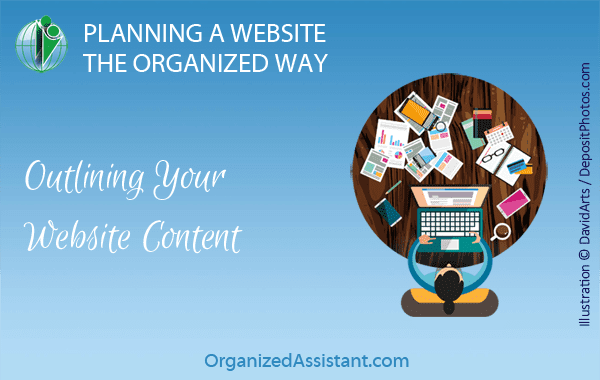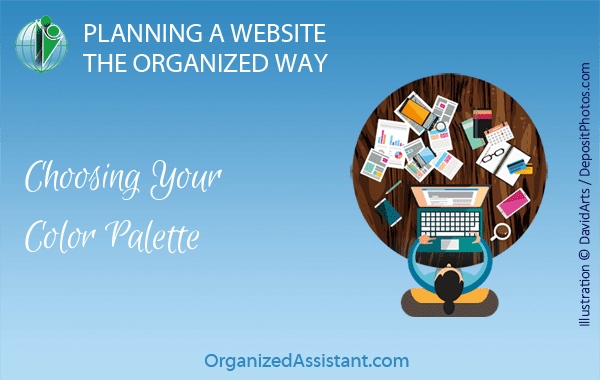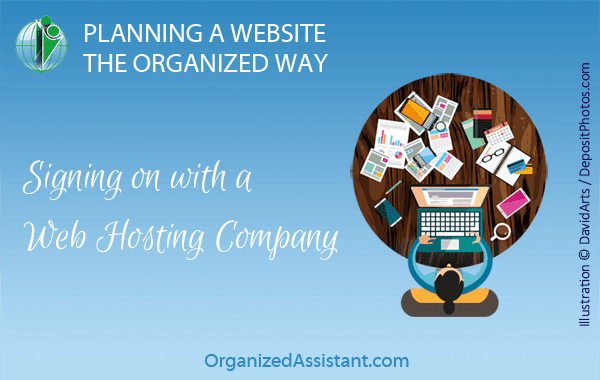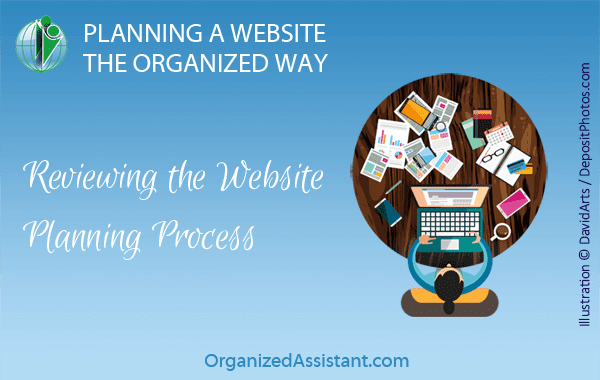Outlining Your Website Content
This page may contain links to Amazon.com or other sites from which I may receive commission on purchases you make after clicking on such links. Read my full Disclosure Policy

Because a website is primarily visual, many business owners consider design to be the top priority, but it shouldn’t be. An attractive website may be eye-catching, but if the message doesn’t speak to the needs of your target market, it’s not going to be effective.
Instead of coming up with a perfect design, then figuring out how to incorporate your text, you need to first decide what your website should say, then determine the best way to present that information.
As a starting point, most websites include the following pages:
Home
As this is often the first page visitors see when they arrive on your site, your Home page or Welcome page should quickly inform them who you are, what you do, and of course, what’s in it for them.
To see some great home page examples, study the winners of The Webby Awards Best Home/Welcome Page for 2015.
About
This page gives background information about you and/or your business, letting potential clients know why they should purchase your products or services. It may include such details as company history, credentials, certifications, media appearances, and bios for the business owner and other team members.
For inspiration, check out HubSpot’s 12 About Us Page Examples That Are Probably Better Than Yours.
Services (or Products)
Most people use the Internet to research their options before they even contact a service provider or supplier. Make sure you don’t miss out on opportunities by failing to describe each service or product you offer, including the benefits they provide.
Other Pages
If this is your first website for a new business, the above pages may be all you need to start with. You can always add more pages as your business grows. Other common pages include:
- Blog
- Contact
- Testimonials
- Portfolio / Before & After Photos
- Frequently Asked Questions
- Media
- Resources
I’ll be delving more deeply into the Blog and Contact pages later in this series, but if you have questions about any of the other pages, please feel free to post them in the Comments.
Additional Considerations
Do you already have a website?
You may be able to reuse the content from your existing site, but do take the time to make sure it accurately reflects your current message.
Who will write your website content?
If you’re comfortable preparing your own copy and your writing skills are good, then go for it! If someone else is creating your website, be sure to ask if they will proofread and edit your work, as many designers do not provide this service.
You may choose to hire a professional copywriter who will ensure that you have a compelling marketing message that is also search-engine friendly.
Read the next post in this series to find out how to organize your content.




It really is all about the content. Pretty is nice, but people don’t visit a site for the artwork. This is a great reminder for me to revisit some of my more “static” pages and refresh them. Thanks Janet!
Hey Seana, I hope you’ve started a notebook to collect all your ideas! 🙂
Great tips Janet. I like using the phrase “free resources”. People love free stuff and maybe more willing to share. Thanks for sharing.
That’s a great strategy, Sabrina! I think that a lot of people include the word “free” in their search queries too, so it could even help generate more traffic to your site.
I remember attending one of my first NAPO teleseminars with Geralin Thomas and I’ll always remember her saying; “Your website should be like a well-tended garden and always have something in bloom!” I like your suggestion about not just listing your services, but their benefits too. I may need to do some tweaking to my ‘Services’ page!
I often say that a website is always a work-in-progress, but I love the way that Geralin says it! Thank you for sharing that quote.
Great advice Janet! Besides having a separate page with testimonials on it where else would you recommend putting testimonials so people can see them?
When you’re new in business, you probably don’t have many testimonials, so to create a Testimonials page and only put one or two on it might not give potential clients the reassurance they need.
On the other hand, if you have dozens and put them all in one place, it might look impressive, but most people probably won’t take the time to actually read them.
Here are a few alternatives:
It’s all about placing the information where it will be most effective!